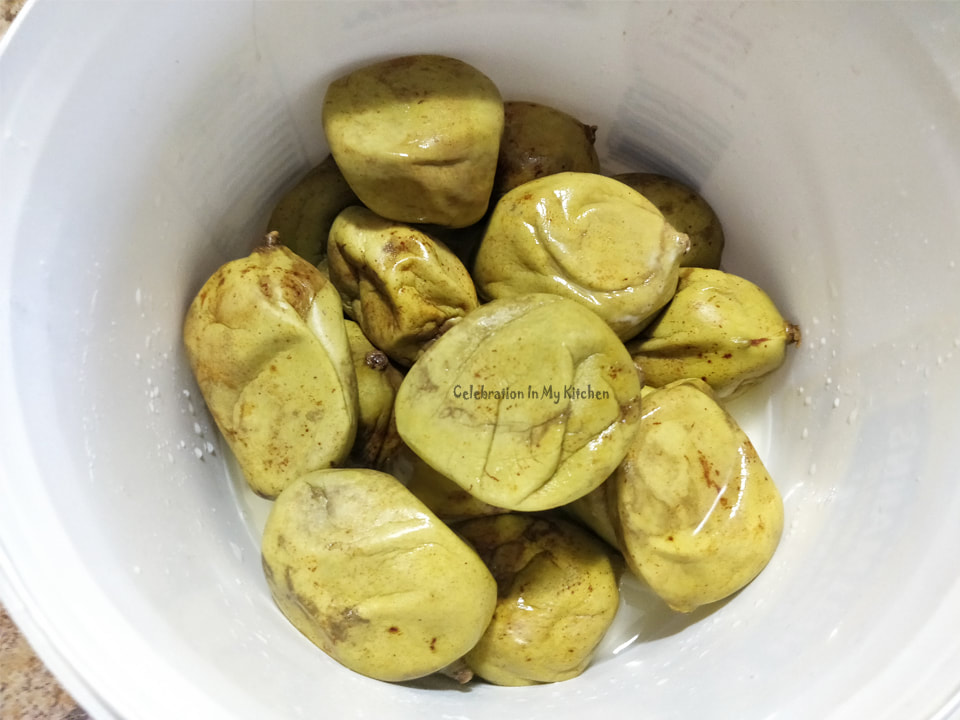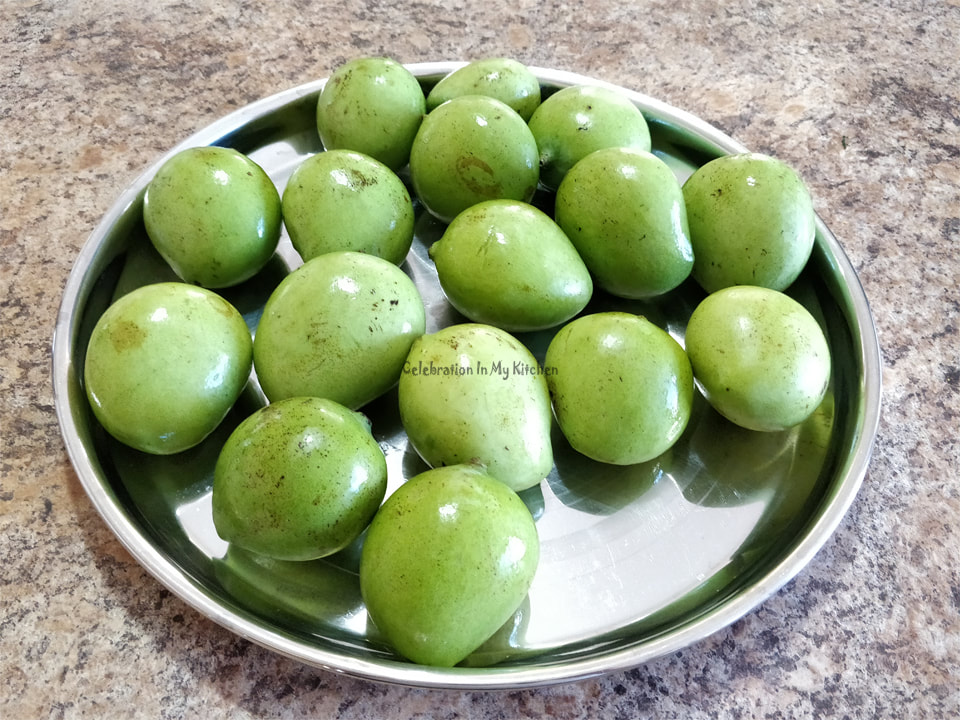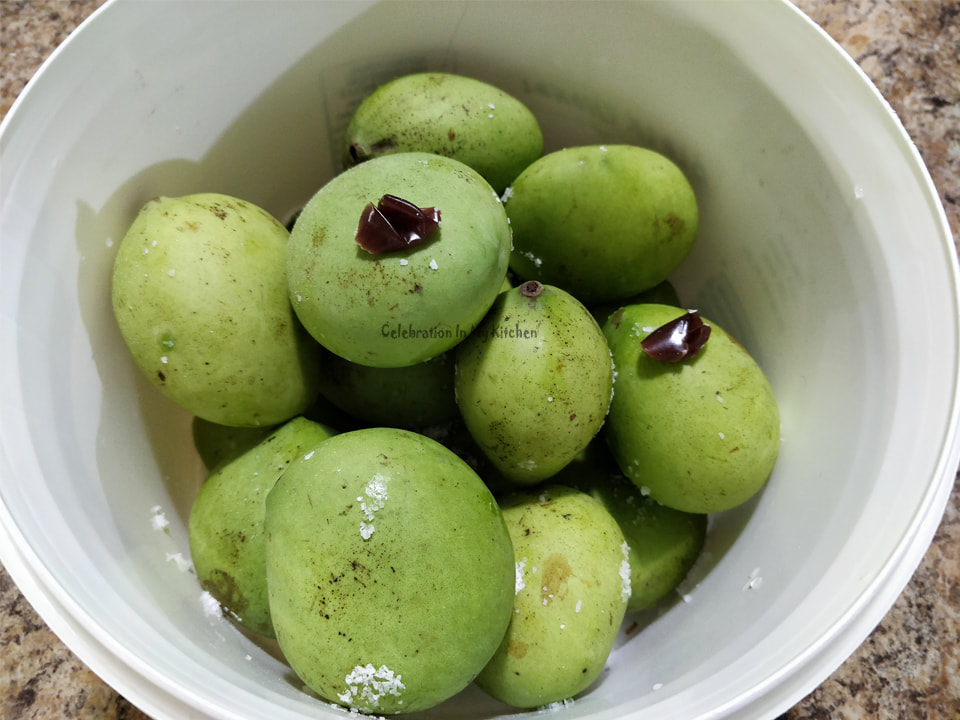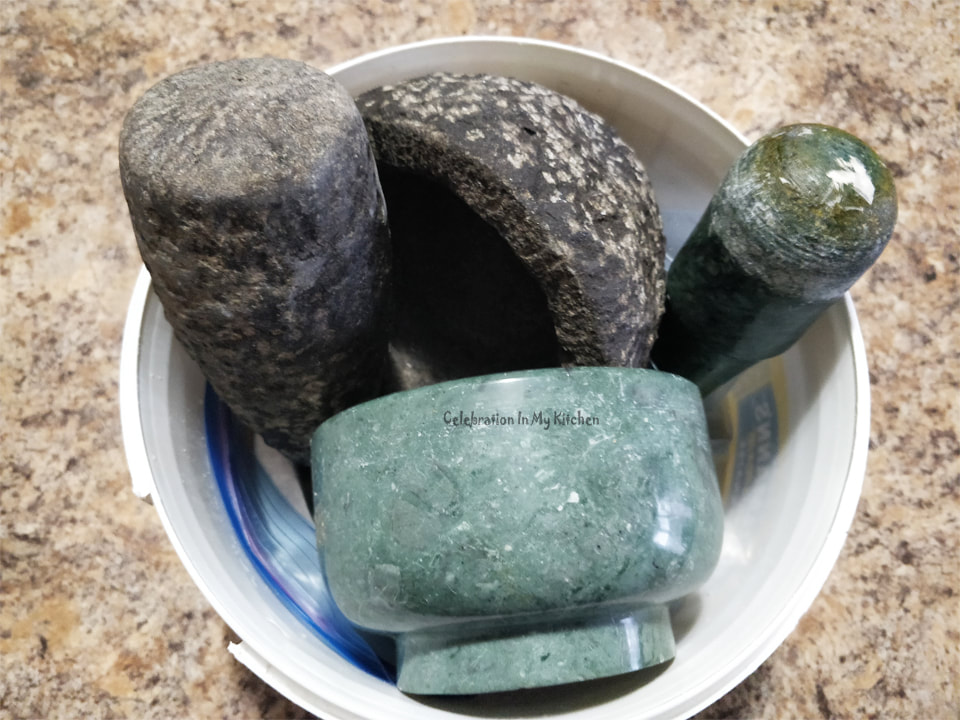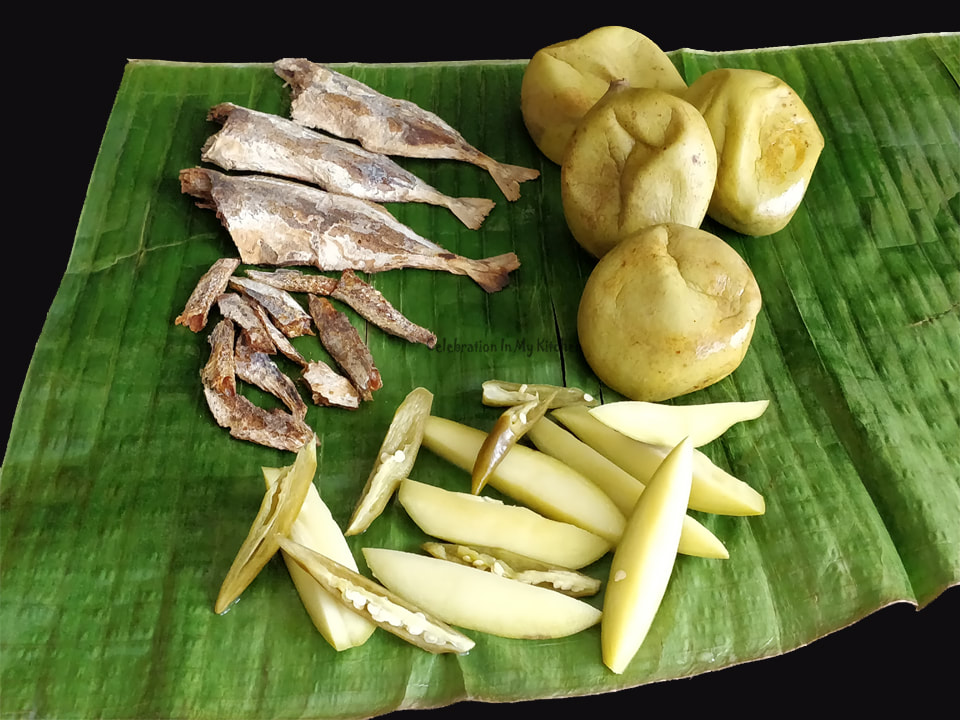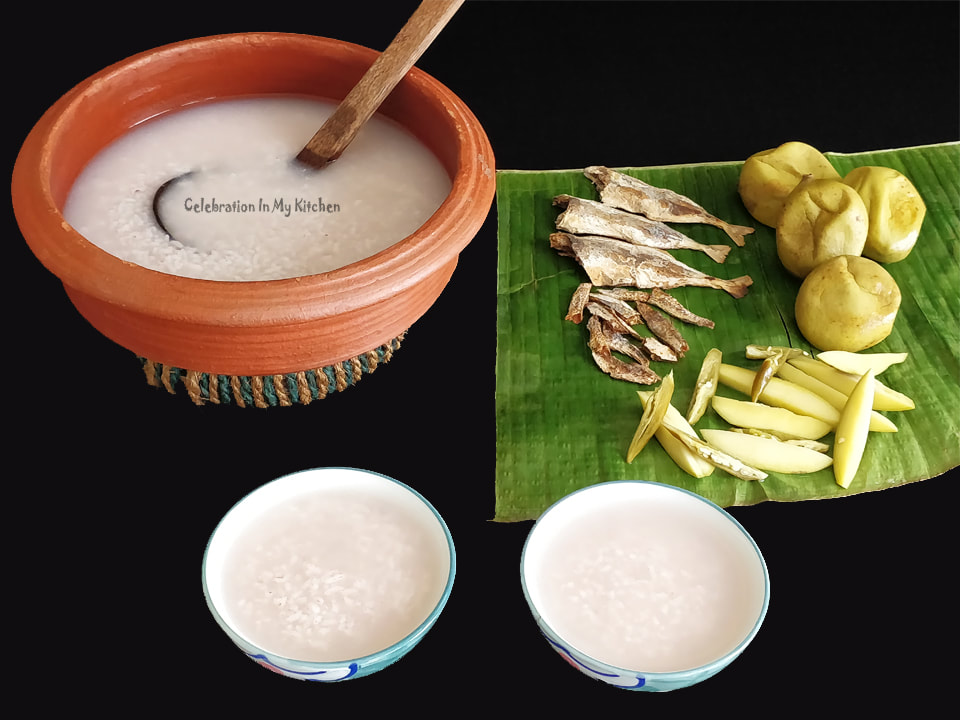The Konkani word chepnim translates to “pressed”, while tora are "raw mangoes". An age-old Goan traditional pickle and one of the easiest to make with no oil. Salt is the main ingredient that aids in curing and preserving the mangoes that shrink in size, change colour, while releasing their juices. A brine is created when whole baby mangoes are kept under weight. This brine helps in storing the mangoes in sterilized jars, maturing them to desired crispiness and doneness. Nostalgic and reminiscent of our summer holidays when my mother would make this pickle for the monsoon season or to relish throughout the year. Delicious and satisfying accompaniment to pez (canjee) or a Goan meal.
Salting is an age-old method that is popularly used for pickling, curing and preserving. Cheap, safe, quick, easy and foolproof. Baby mangoes are usually available during the peak season in early summer. Select ones that are small, firm, with a smooth, vibrant green skin. They should have a white, soft, immature seed encased in the centre. Their acidic and tangy flavours make them perfect for brining. Also, these mangoes contain dietary fibre, vitamin C and B.
Salting is an age-old method that is popularly used for pickling, curing and preserving. Cheap, safe, quick, easy and foolproof. Baby mangoes are usually available during the peak season in early summer. Select ones that are small, firm, with a smooth, vibrant green skin. They should have a white, soft, immature seed encased in the centre. Their acidic and tangy flavours make them perfect for brining. Also, these mangoes contain dietary fibre, vitamin C and B.
Chepnim Tora (Pressed Mangoes In Brine)
(Yields 16)
Ingredients:
16 tender baby green mangoes
a small piece of shankarchap rock hing (asafoetida)
4 dried whole red chillies
4 fresh long whole green chillies
8 large garlic cloves with skin (crushed)
3/4 cup kosher coarse salt
Method:
Wash and pat dry the mangoes.
In 3 batches, transfer the mangoes in a plastic container and sprinkle 1/4 cup salt with each addition. Break the rock hing into a couple of pieces and place them in between the mangoes.
Cover the mangoes with a clean ziploc bag on top and keep some heavy weight. I placed a couple of mortar pestles on top of the plastic to weigh the mangoes down. Leave for 10 days moving them around once a day until they change to olive green in colour.
Drain mangoes and reserve the brine.
Place the mangoes in a sterilized container incorporating the crushed garlic cloves, red and green chillies.
Boil 2 cups of fresh water, cool and mix with 1 cup of the brine. Pour over the mangoes ensuring that they are completely submerged with the liquid. If required, make more diluted brine and cover the mangoes.
Leave to mature for 2 weeks before consumption.
When serving, cut mangoes into long slices.
(Yields 16)
Ingredients:
16 tender baby green mangoes
a small piece of shankarchap rock hing (asafoetida)
4 dried whole red chillies
4 fresh long whole green chillies
8 large garlic cloves with skin (crushed)
3/4 cup kosher coarse salt
Method:
Wash and pat dry the mangoes.
In 3 batches, transfer the mangoes in a plastic container and sprinkle 1/4 cup salt with each addition. Break the rock hing into a couple of pieces and place them in between the mangoes.
Cover the mangoes with a clean ziploc bag on top and keep some heavy weight. I placed a couple of mortar pestles on top of the plastic to weigh the mangoes down. Leave for 10 days moving them around once a day until they change to olive green in colour.
Drain mangoes and reserve the brine.
Place the mangoes in a sterilized container incorporating the crushed garlic cloves, red and green chillies.
Boil 2 cups of fresh water, cool and mix with 1 cup of the brine. Pour over the mangoes ensuring that they are completely submerged with the liquid. If required, make more diluted brine and cover the mangoes.
Leave to mature for 2 weeks before consumption.
When serving, cut mangoes into long slices.

